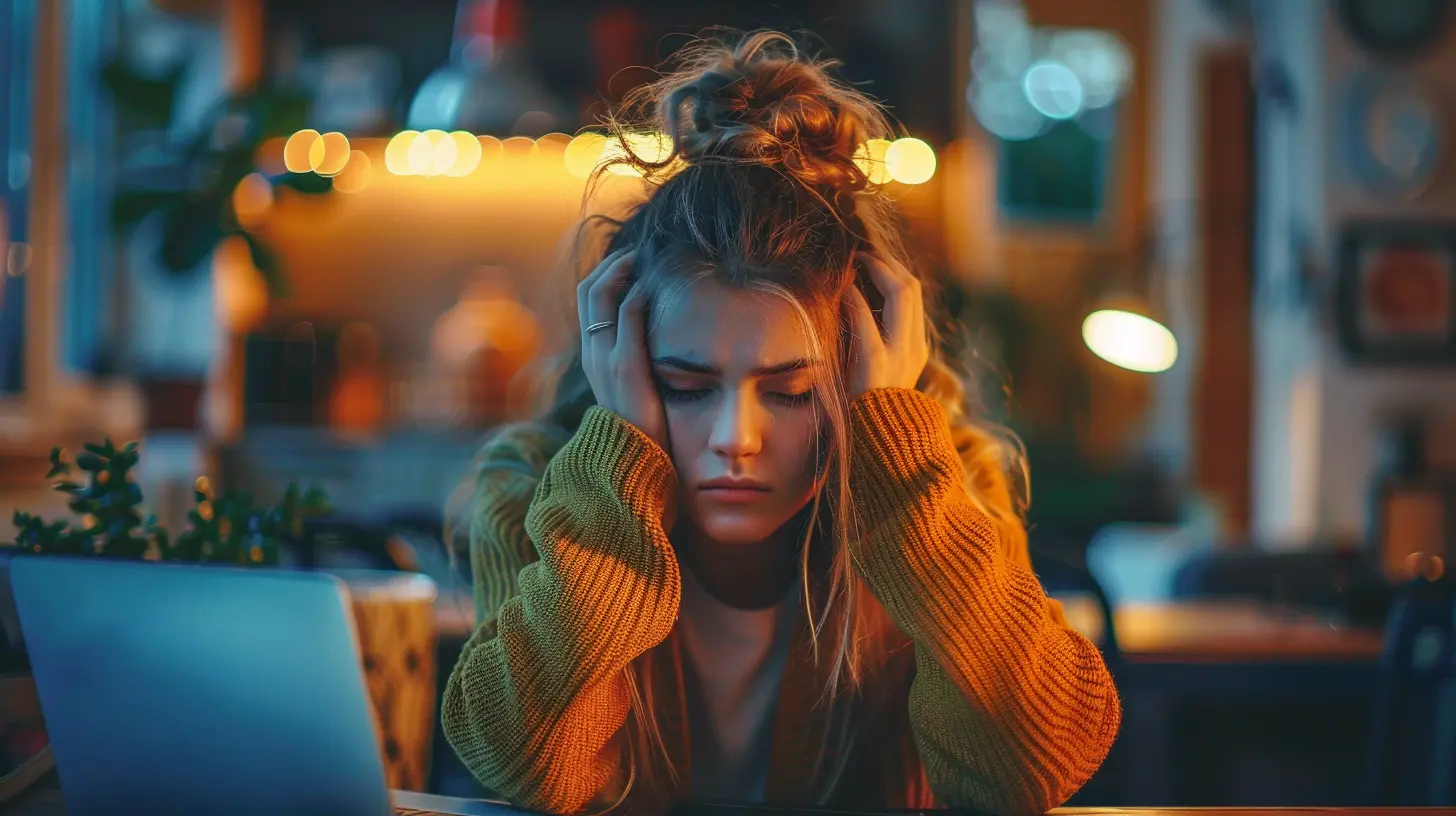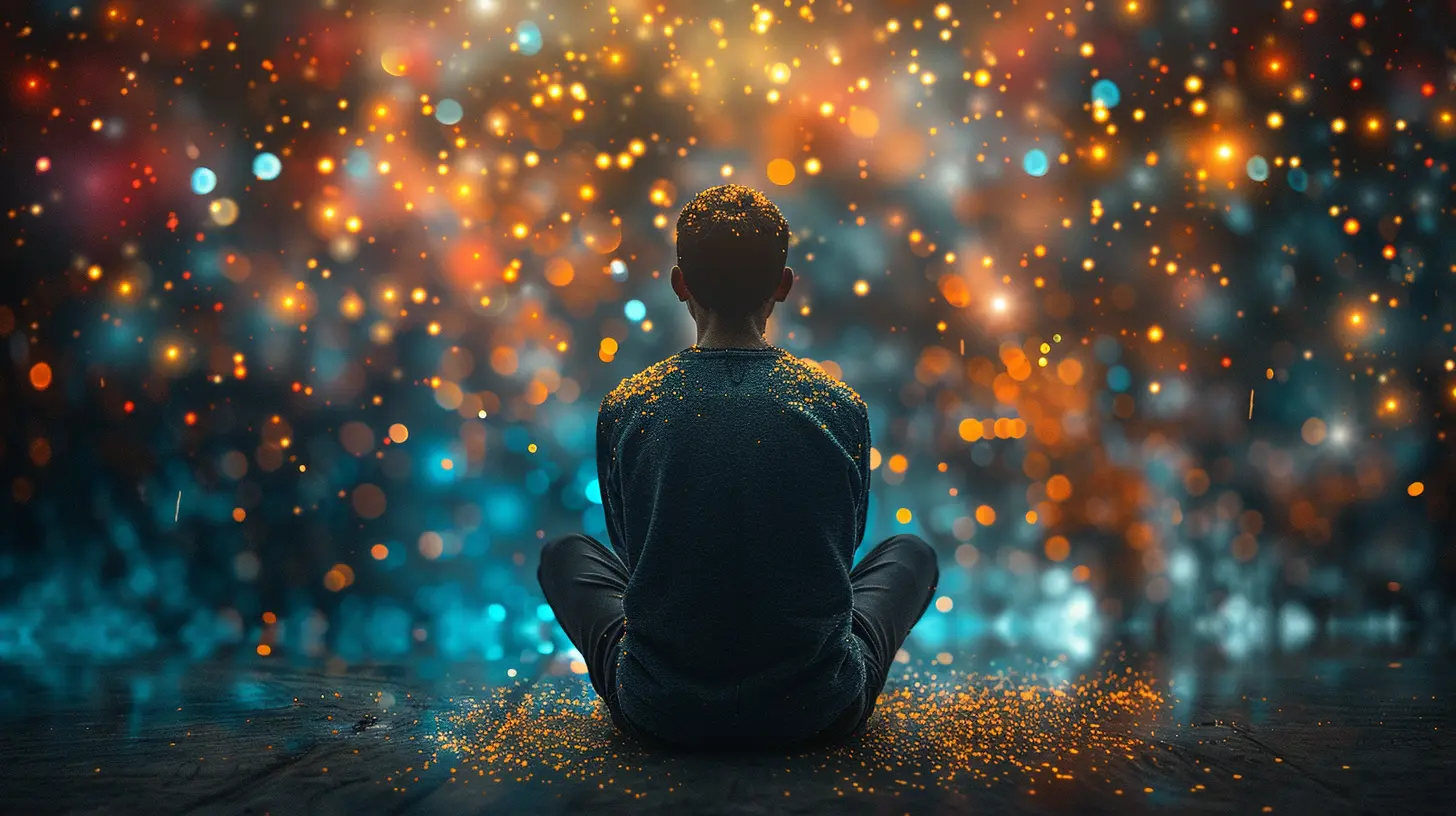Digital Detox: How Technology Affects Your Mental Health
21 October 2025
Ever caught yourself endlessly scrolling through Instagram, only to realize it’s been an hour (or two)? You're not alone. We're all living in a hyper-connected digital world, and while there's no denying the benefits of modern technology, it's taking a toll on our mental health—often more than we realize.
There’s a name for stepping back from the screen: digital detox. And trust me, it’s not just a buzzword. It's a lifestyle shift, a sanity saver, and honestly, something we all need to understand better.
In this article, we’ll dig into how tech impacts our minds, why digital detoxes are essential, and how to start reclaiming your mental space—without throwing your phone into the ocean. Let’s get into it.
The Dark Side of Tech: Why Constant Connectivity Isn't Always a Good Thing
Technology is awesome. I mean, we have the power to connect with anyone, anywhere, at any time. But here's the flip side: we're almost never unplugged. That constant pressure to stay online, reply instantly, and stay updated is draining us emotionally, mentally, and physically.1. Screen Time and Mental Fatigue
You might think binge-watching one more episode or checking email before bed is no biggie. But our brains weren’t wired for the 24/7 digital circus. When you're glued to your screen, you’re not resting—your mind is overstimulated.Constant notifications? They shoot up your cortisol levels (hello, stress hormone). Over time, this kind of digital hyperactivity leads to mental exhaustion, brain fog, and even burnout. Sound familiar?
2. Social Media and the Comparison Trap
Scrolling through highlight reels of everyone’s life can make your own feel, well, kind of dull.Social media has a sneaky way of messing with our self-esteem. It promotes toxic comparison—always feeling like you're not thin enough, rich enough, successful enough. Keeping up with "perfect" online personas creates unrealistic expectations that chip away at your confidence and happiness.
3. Sleep Disruption
Ever find yourself staring at the ceiling at 2 a.m., phone still in hand? That blue light isn't doing your melatonin any favors. Using screens before bed disturbs your sleep cycle by suppressing the hormone that tells your brain it's time to wind down.The result? Poor sleep quality, mood swings, and increased anxiety the next day. It’s a vicious cycle, and it starts with one late-night TikTok scroll.
Tech Addiction Is Real—And It’s Not Always Obvious
We throw around terms like "phone addiction" a lot, but somewhere along the way, it became normalized. The truth? Many of us are addicted to our devices—we just don't always see it.Signs You Might Need a Digital Detox
Let’s be real for a second. If you’ve experienced any of these, it might be time to pump the brakes:- Feeling anxious or restless without your phone
- Constantly checking notifications (even when there aren’t any)
- Mindless scrolling even when you're not enjoying it
- Prioritizing screen time over real-life interactions
- Reduced attention span and inability to focus
Sound familiar? You're not broken—it’s the tech.
How a Digital Detox Can Help Your Mental Health
A digital detox isn’t some extreme anti-tech movement. Think of it more like a reset button for your brain. Just like your phone needs to be rebooted from time to time, so do you.1. More Clarity, Less Clutter
When you unplug, your thoughts become clearer. Without the constant pings, likes, tags, and tweets, you’ll find yourself more focused, productive, and present. It’s like walking out into a quiet forest after being stuck in a traffic jam—you can finally hear yourself think.2. Improved Mood and Reduced Anxiety
Unplugging from the digital chaos helps reduce anxiety, especially the kind fueled by comparison, FOMO (fear of missing out), and sensory overload. Instead of reacting to the endless stream of online drama, you start choosing peace and presence.3. Better Sleep + Brighter Mornings
Cut down your screen time an hour before bed and you’ll sleep deeper and wake up more refreshed. It’s that simple. Without the blue light disrupting your brain’s natural rhythm, your body gets the rest it actually deserves.4. Real Human Connection
Ever been out with a friend and both of you are glued to your phones instead of talking? Yeah, we all have. A digital detox gives you more time for eye contact, deep convos, and laughing until your ribs hurt. That’s the kind of connection that feeds your soul—not likes or emoji reacts.
Simple Ways to Start Your Digital Detox Today
Okay, so now you’re thinking: “This sounds great, but how do I actually do it?” No worries—I’ve got your back.You don’t need to move to a cabin in the woods. Here are some easy-to-implement tips:
1. Set Screen Time Limits
Most smartphones have built-in screen time trackers. Use them. Set daily limits for apps that you tend to overuse, like social media or streaming platforms. It’s a small move with a big impact.> Pro tip: Disable notifications from non-essential apps. Out of sight, out of mind.
2. Create Device-Free Zones
Designate certain areas in your house—like the dining table or bedroom—as phone-free. It sets clear boundaries between screen life and real life.3. Practice the 20-20-20 Rule
Every 20 minutes, look away from your screen and focus on something 20 feet away for 20 seconds. It helps prevent digital eye strain and gives your mind a micro-break.4. Try a Digital Sabbath
Dedicate one day a week (or a few hours) to go completely offline. No emails, no social media, no texts. Fill that time with analog activities—read a book, take a walk, journal, or hang out with people IRL.5. Replace Screen Time with “Real” Time
Instead of mindlessly scrolling, do something that genuinely recharges you. Paint, cook, meditate, take up yoga, or just sit and do nothing (yes, that’s allowed!).Managing Tech in a Healthy Way Long-Term
Detoxing doesn't mean ditching your devices forever. It’s about using tech more intentionally. Just like you wouldn’t eat fast food for every meal, you shouldn’t consume digital content non-stop, either.Think of digital usage like a diet. It’s not about starving yourself—it’s about having a balanced intake that nourishes your mental and emotional health.
Ask Yourself These Before Engaging Online:
- Am I using this platform with a purpose, or just escaping boredom?- How do I feel after spending time here—energized or drained?
- Is this helping me grow, connect, or relax?
Being mindful of your tech habits will help keep things in check. Awareness is the game-changer.
When to Seek Help
Sometimes, digital dependency goes deeper. If you’re finding it really hard to break away from your screens and it’s affecting your work, relationships, or emotional well-being, it might be time to talk to a mental health professional.There’s no shame in that. Think of therapy like an app update for your brain—sometimes you just need a little expert help to recalibrate.
Final Thoughts: You’re Not a Robot. Unplug Like a Human.
You weren’t born with a phone in your hand. You’re not designed to operate at full digital capacity 24/7. And you’re definitely not failing if you're feeling overwhelmed by the constant connectivity.Doing a digital detox doesn’t mean rejecting the modern world. It means reclaiming your peace, your presence, and your power. Because the truth is, the more you unplug from the noise, the more you plug into yourself.
So, go ahead—set your phone down for a bit. The world will keep spinning. But your mind? It’ll thank you for the break.
all images in this post were generated using AI tools
Category:
Mental Health AwarenessAuthor:

Eliana Burton
Discussion
rate this article
1 comments
Paige McNair
In a world dominated by screens, prioritizing a digital detox isn't just beneficial—it's essential. Reclaim your mental health by disconnecting from the noise and reconnecting with yourself. Embrace the clarity and peace that comes from stepping away.
October 28, 2025 at 4:58 AM

Eliana Burton
Thank you for your insightful comment! Embracing a digital detox is indeed crucial for mental health and can lead to greater clarity and well-being.


